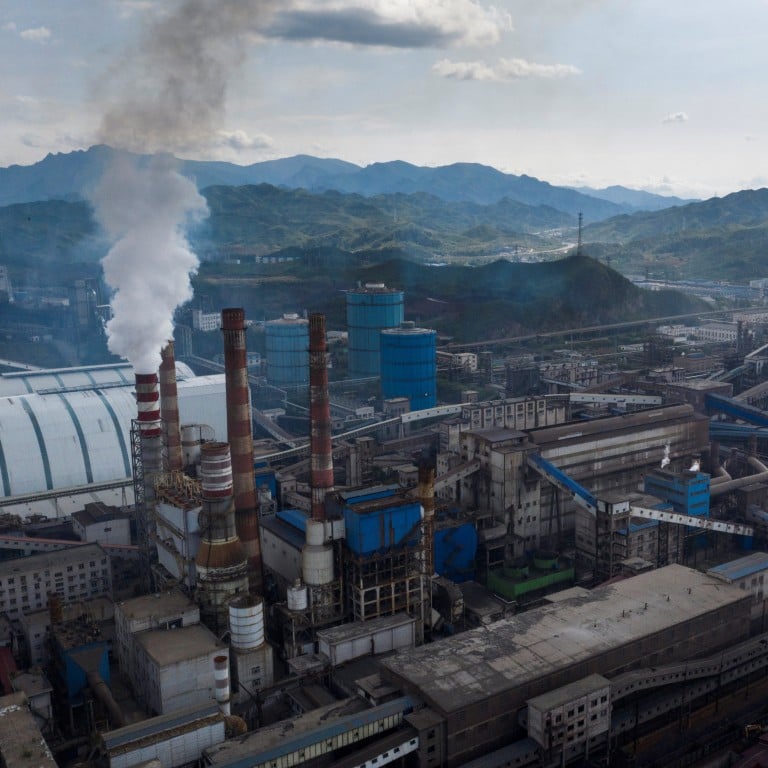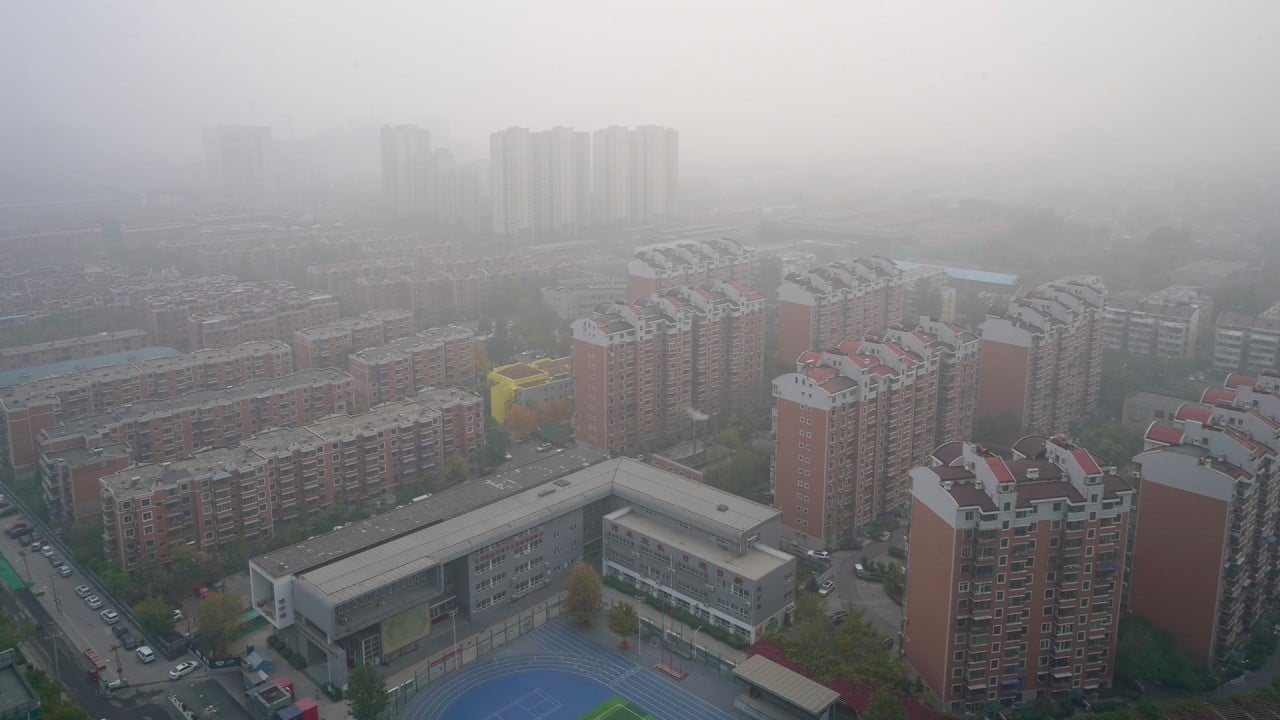
China’s goal for blue sky Beijing Winter Olympics set to cause ‘supply-side shock’ as factories close
- Efforts to reduce smog have been extended to 64 cities this winter, plus Beijing, which hosts next year’s Winter Olympics
- Restrictions on production will heap pressure on economic growth and domestic supply chains, analysts say
The Beijing Winter Olympics may weigh on China’s economy as authorities close scores of factories in northern production hubs to cut pollution and ensure blue skies, economists say.
“Although the Yangtze River Delta and the Pearl River Delta are not involved, the area that is affected is also a relatively important part of China’s economy, especially in terms of raw material productions,” Lu Ting, chief China economist at Nomura, said at a webinar on Monday.
The area encompasses some of the country’s most important heavy industrial hubs, such as Tangshan, the world’s biggest steel-producing city in Hebei Province; Shanxi, the country’s largest coal mining province; and major aluminium producing provinces Shandong and Henan.
Restrictions on production will heap pressure on the economy and domestic supply chains, analysts said.
It is too early to quantify the impact of production curbs, but its broad coverage will be significant, Lu said.
So this is still a supply-side shock, and the shock will not be gone until mid-March
“So this is still a supply-side shock, and the shock will not be gone until mid-March,” he said, as the 2022 Winter Paralympics ends on March 13.
Mills in Tangshan, which produced 144 million tonnes of steel in 2020, plan to reduce production by 12.4 million tonnes this year, according to a document from local authorities released in August.
As a result, China’s crude steel output in the second half of the year will drop by 13 per cent compared to the first half, according to a report from GF Futures in August.
As for cement, local governments in Hebei, Shanxi, and Inner Mongolia, which is not on the MEE list, have all ordered factories to reduce or halt production until the end of March.
The wealth gap between China’s north and south has widened since the beginning of the coronavirus pandemic, as richer southern provinces have been able to rely on exports, while domestic consumption in the north has remained weak.
Efforts to bring carbon emissions to peak by 2030 have also had disproportionate impacts on economies in the north, Lu said.
“The provinces in northern China account for only about 35 per cent of [gross domestic product], but account for two thirds of China’s carbon emissions,” he told the South China Morning Post. “Because of the heavy industry in the north, carbon reduction will have a greater impact on the economy of the north.”
The curbs on factory activity will also hurt workers’ livelihoods.
Li, who was unwilling to disclose his full name, said the plywood factory he works at in Linyi, Shandong province, has been operating at reduced capacity for three months and his income has been cut by more than a third.
“We’ve been going through either power rationing or pollution control, as long as electricity is used, you’ll get a call ordering a shut down,” said Li, who is a forklift driver. “Now that the weather is getting worse, it’s even stricter.”
While forklift drivers are some of the least affected among the factory’s 200-strong workforce, Li’s work week has been slashed from seven days to three – and some of his colleagues are dealing with even bigger pay cuts.
“There are lots of plywood factories near Linyi, and they are all going through the same thing, probably less than one tenth of workers are unaffected,” Li said.



